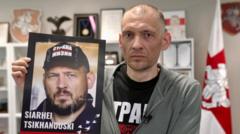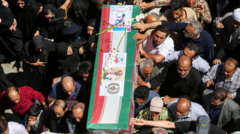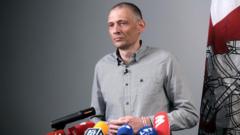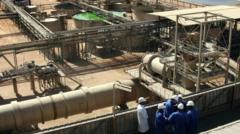Ali Bongo, the former president of Gabon, along with his wife Sylvia and son Noureddin, has been flown to Angola after being released from detention on provisional grounds due to health issues. Their release comes amid ongoing legal battles over corruption charges, with implications for Gabon's political landscape post-coup.
Gabon's Former President Ali Bongo and Family Released, Depart for Angola
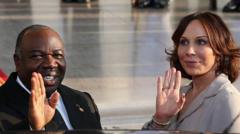
Gabon's Former President Ali Bongo and Family Released, Depart for Angola
After two years in detention, Ali Bongo, ousted in a coup, travels to Angola with his family following their release from legal proceedings.
In a significant development following a tumultuous political shift in Gabon, the deposed president Ali Bongo and his family have been released from detention after two years and have flown to Angola, according to statements from Angolan authorities. Ali Bongo, who was overthrown in a 2023 coup by now-President Brice Oligui Nguema, is accompanied by his wife Sylvia and their son Noureddin, both of whom faced serious corruption allegations.
Sylvia Bongo and Noureddin had been imprisoned since the coup, with Sylvia facing charges of embezzlement, forgery, and money laundering. Their lawyer has described Sylvia's detention as arbitrary, a sentiment echoed by opposition figures within Gabon, who claim that President Nguema's actions reflect capitulation to international pressure.
Their release was reportedly made on provisional grounds due to health issues, though Gabonese prosecutor Eddy Minang indicated that legal proceedings would still persist against them. This release closely follows a diplomatic visit by Angolan President João Lourenço, who leads the African Union, indicating a possible step towards reconciliation within Gabon's political framework.
During his 14-year presidency, Ali Bongo, son of long-time Gabonese leader Omar Bongo, faced various accusations of enriching his family while the majority of Gabonese citizens lived in poverty, despite the country’s oil wealth. The recent shift has led to Gabon’s re-admittance into the African Union, signaling a tentative return to stability and discussions of constitutional restoration on the continent.
As the political dynamics shift in Gabon, there are concerns regarding the continued influence of military leaders in West Africa, reflecting broader tensions over governance and authority in the region.
Sylvia Bongo and Noureddin had been imprisoned since the coup, with Sylvia facing charges of embezzlement, forgery, and money laundering. Their lawyer has described Sylvia's detention as arbitrary, a sentiment echoed by opposition figures within Gabon, who claim that President Nguema's actions reflect capitulation to international pressure.
Their release was reportedly made on provisional grounds due to health issues, though Gabonese prosecutor Eddy Minang indicated that legal proceedings would still persist against them. This release closely follows a diplomatic visit by Angolan President João Lourenço, who leads the African Union, indicating a possible step towards reconciliation within Gabon's political framework.
During his 14-year presidency, Ali Bongo, son of long-time Gabonese leader Omar Bongo, faced various accusations of enriching his family while the majority of Gabonese citizens lived in poverty, despite the country’s oil wealth. The recent shift has led to Gabon’s re-admittance into the African Union, signaling a tentative return to stability and discussions of constitutional restoration on the continent.
As the political dynamics shift in Gabon, there are concerns regarding the continued influence of military leaders in West Africa, reflecting broader tensions over governance and authority in the region.

